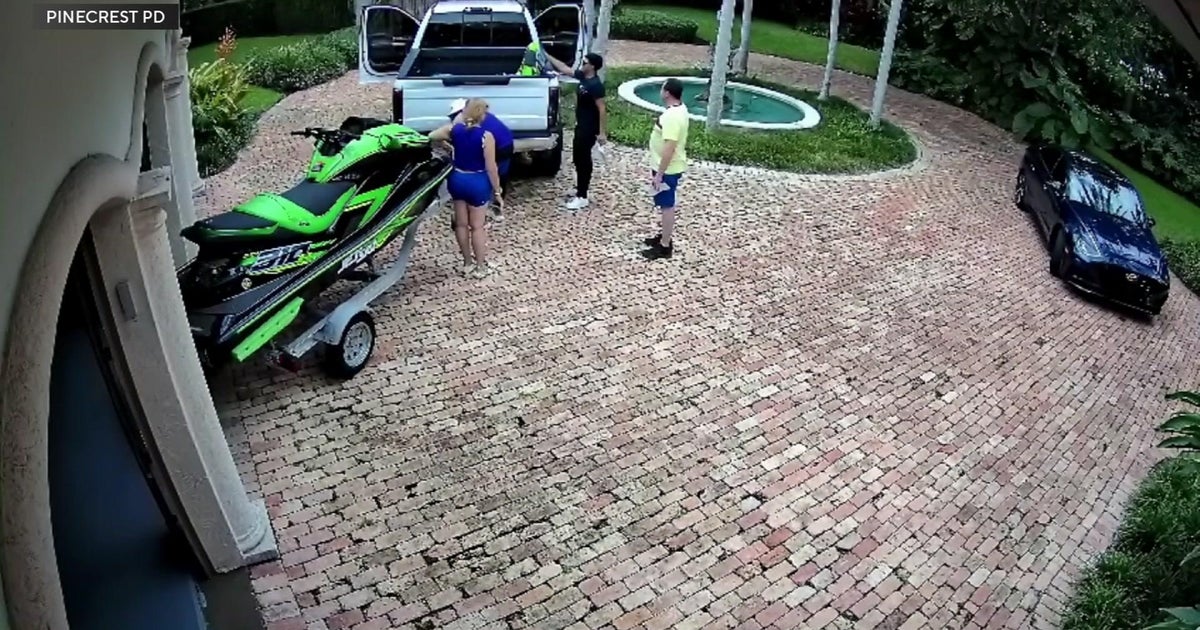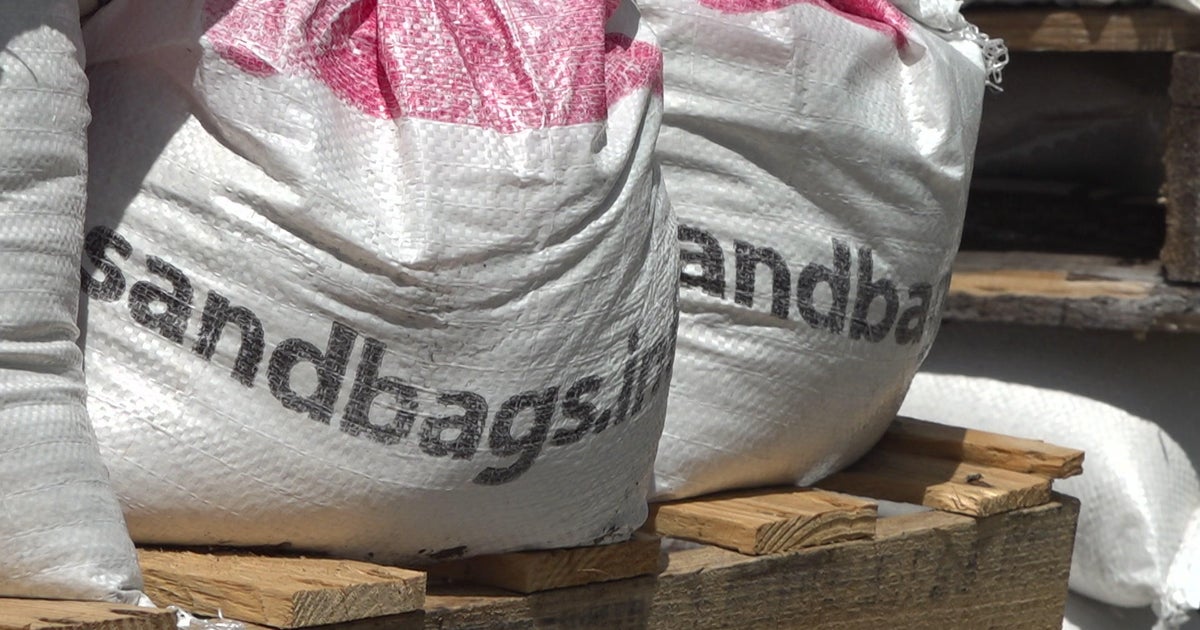Thousands of families suffer after justice delay
MIAMI - Fletcher Everett is making sure his jail tracking device is working properly.
CBS4 met him at a downtown Miami location on a recent Wednesday in December where he works with the nonprofit legal advocacy group 'Beyond the Bars.' He was dressed in a yellow jacket with a grey shirt emblazoned with the Beyond the Bars logo.
Everett agreed to speak about his experience waiting for his court case to be heard.
His arrest in 2017 would be traumatic but ultimately life transforming. He said when police surrounded his home in 2017 it was unexpected.
"They punched my wall unit in with machine guns and told me to come out," he said. "I went to jail on possession of firearms and human trafficking."
Everett ended up at the Metro West Detention Center where he would spend the next four years. He said all that time he only had two court appearances.
"I was in a cell with the first guy who passed away, the conditions were horrendous," he recalled.
Conditions became even worse when the COVID pandemic hit in 2020.
Everett said he endured and became a jail trustee, a position of trust. He organized a peaceful protest and spent time in solitary.
He said he even wrote a letter to the judge in his case hoping to get it resolved. Nothing happened.
"I can't put into words the pain I felt. The people I lost while in jail. That hurt," he said.
Everett also lost everything he had. His home, his car, savings and all possessions.
The pain he experienced is widespread in south Florida where there are thousands of people waiting in jail for their cases to be heard. The backlog was bad before the pandemic and it's grown worse.
The pandemic caused courts to shut down. On top of that, the Florida Supreme Court in March 2020 suspended the constitutional right to a speedy trial, meaning cases were put on hold.
The suspension was lifted entirely in early 2022 but if the wheels of justice grind slow in normal times, the pandemic meant it nearly ground to a halt.
"Anytime you have a backlog, it's justice delayed," says Miami-Dade criminal defense attorney Jude Faccidomo.
How delayed?
CBS4 examined state data for 2018-2019 and found that in Miami-Dade:
- 84,524 criminal cases were filed
- 86,460 cases were disposed
In 2020-2021:
- 52,989 criminal cases were filed
- 47,661 were disposed
In Broward in 2020-2021:
- 29,203 criminal cases were filed
- 25,526 were disposed
"As a young lawyer, I had over 600 cases. It was a heavy caseload," said Patyl Oflazian.
That was at the beginning of her career at the Broward State Attorney's office. She was an assistant state attorney from 2011 to 2018, first handling misdemeanors and moving up to the prosecution of serious felonies
"Once you go in there, there were thousands of felonies, so you always had a backlog," she said.
Oflazian also worked for the Broward public defender from 2019 to 2021.
"You could work every single day, 12 hours a day, and you could not finish the work," she said.
Prosecutors and public defenders agree COVID had a devastating effect on court functions and the great resignation has added to the backlog.
"It's Miami Dade. It's prone to crime. It has an indigent population, so the majority of cases end up in the public defender's office" said defense attorney Faccidomo.
Faccidomo has been in private practice for 15 years and before that worked in the public defender's office.
"You are never going to have a small caseload in Miami-Dade. It's like polishing the brass on the Titanic. There's high crime, huge arrests" he said
Faccidomo was part of a task force to keep the courts operating during the pandemic.
Post-COVID, the court continues with a hybrid system, in-person hearings and zoom appearances. Broward's criminal court is the same.
"I see the issue as systemic if you will," says Broward criminal defense attorney Eric Schwartzreich.
He agrees the pandemic made the court backlog crisis even worse.
"Some judges are resistant to change. Not all counties like zoom. It isn't good for jury trials," he said.
Schwartzreich said trials are picking up but there is room for change.
"Everyone, prosecutors, defense attornies, the courts, need to work together," he said.
With rising inflation and soaring housing costs, experts agree the state has to pay prosecutors and public defenders more to make a dent in the backlog.
Other solutions talked about include diversion programs for less serious crimes, limiting continuances, and expanding courthouse hours.
The court backlog affected Everett in countless ways. After four years, he was released from jail and is serving two years of community control and five years probation.
He has found help and hope working with Beyond the Bars. He's now counseling inmates and their families through the complex maze of criminal court, doing his part to make a dent in the criminal court backlog.
"Being an organizer, I'm learning why people commit crimes. They see what we can do so they can make a change," he said. "People tell me they love me. It's a blessing."




